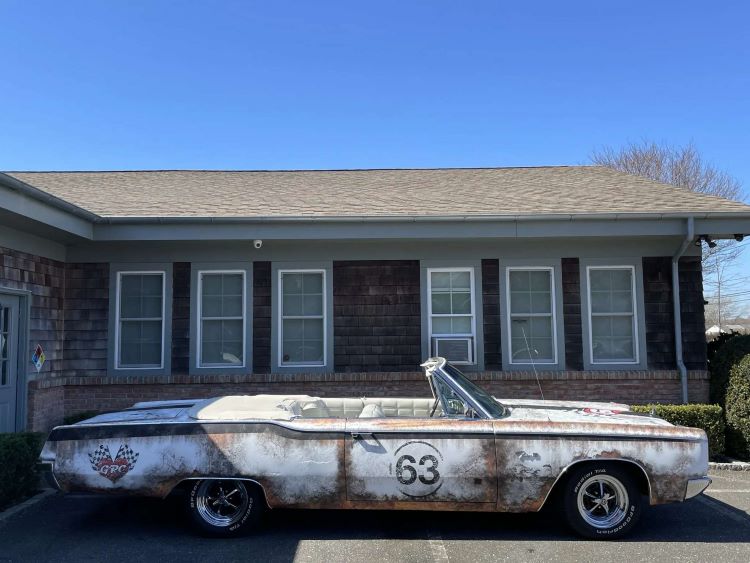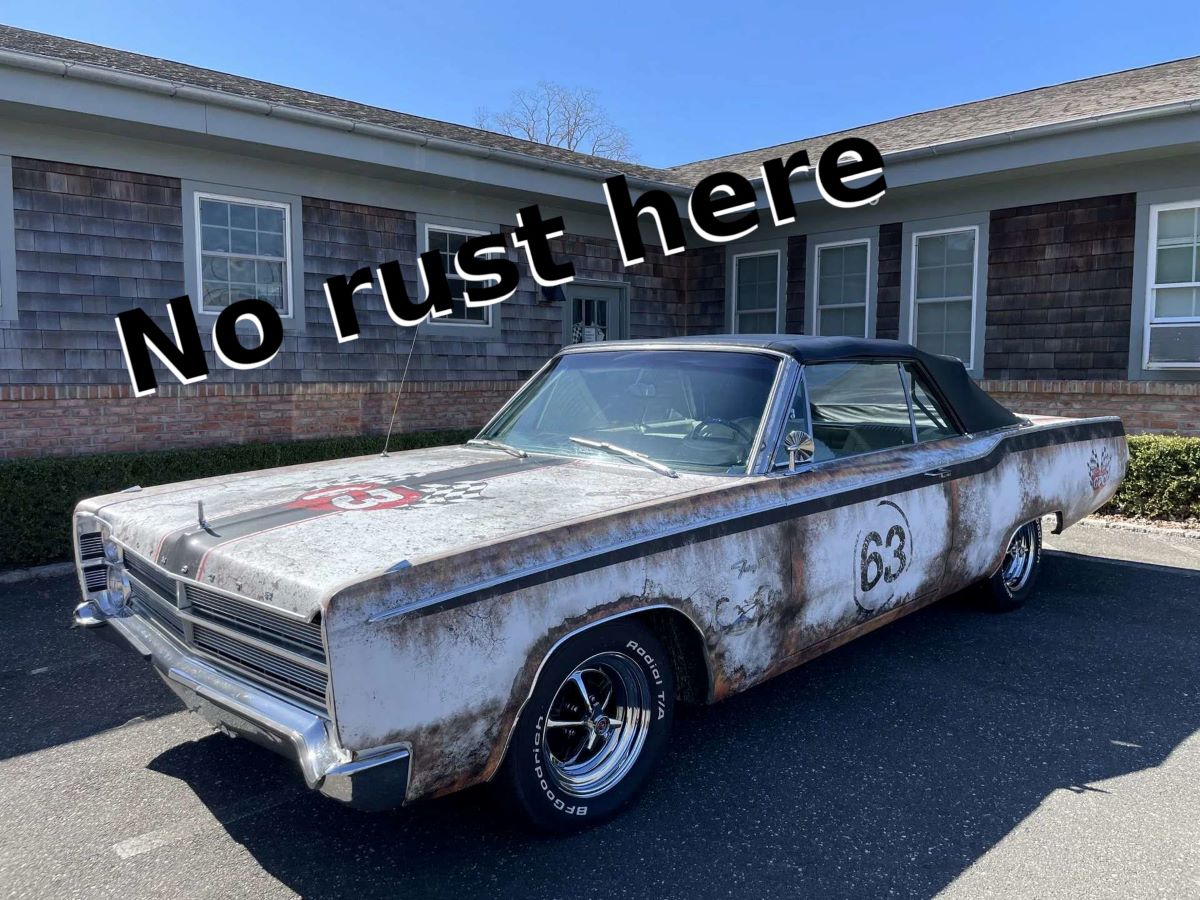While many people are investing a ton of money to make their old cars look shiny and new, the owner of this open-top Plymouth Fury III had decided otherwise. So, even if the vehicle is completely restored and ready to roam the streets, it has a look that might scare people away.
Getting an old car in tip-top shape is no easy task. I’ve been on that road several times, and it’s a challenging journey. Everyone who says otherwise just paid someone else to do the job. I didn’t, and many of our readers had searched through junkyards and all over the Internet to find that specific, unique part that kept their cars from running.
This Plymouth Fury, on the other hand, is not in bad shape at all. Just forget about its look. It is not what it seems to be. It is a custom vinyl wrap that makes the car appear to be in bad shape. Underneath it is a white bodywork, although the original color seems to be beige, judging by the plate installed on the fender. But if the actual look of this car is not your cup of tea, you may remove the wrap. A specialized shop can do that for you. Or you can do that by yourself if you have the patience.

But there is more about this Fury III than just its unusual look. It is not a restomod, and it’s not one of the sought-after versions fitted with the mighty 440 cu-in engines. Underneath its hood is a fine-running V8 that is built to last forever. The car left the factory with a Torque-flite tranny still with the vehicle. It is worth mentioning that, according to the seller and the invoices, it was rebuilt in June 2019.
At the same time, the car went through a complete makeover that involved new spark plugs and ignition wire set, distributor rotor and cap, condenser, and PCV valve. In addition, an engine tune-up and all fluids and filters were replaced. Moreover, the rear axle got new seals and bearings, so you won’t have the garage floor stained by nasty liquids dropping from the differential. It also sports a fresh set of 215/65 BFGoodrich Radial T/A white-letter tires wrapped around 15” wheels with Magnum 500 center caps.
Moving to the interior, you’ll find nice, clean, vinyl-covered seats and refreshed door cars. A Bluetooth audio system with new speakers is ready to please your ears. Some people are usually concerned about the ragtop, which should be challenging to open and close manually. Fret not! The power roof can be operated at a flick of a switch. Still, you need to be parked to do that. Maybe you won’t win any “open the top” race against a Ferrari, but that won’t matter.
For those who don’t know what’s a 1967 Plymouth Fury III, you should know that it was developed during the muscle car era. It is the fourth generation of this nameplate and was built on top of Chrysler’s C-Body platform. The carmaker made it available in all shapes, from a mundane station wagon to a four-door sedan, a two-door hardtop (actually two versions, depending on the model year), and a convertible. The sedan was also used as a cop car back in the days, long before any Ford Taurus wore the black and white colors of the boys in blue.
The front fascia has a distinctive look thanks to its four headlights system, with two on each side of the vehicle, stacked one on top of the other. Its chromed grille is adorned with a cross-hair style respecting the original look of the car.

The car that you see here is powered by a 318 cu-in (5.2-liter) V8 mill that sends 230 hp (223 PS) to the rear wheels via a three-speed automatic. Don’t expect it to be swift, though. Since it tips the scale at around 3891 lbs (1765 kg), you can’t ask it to get a 0-60 mph (0-97 kph) in less than 10 seconds. The top speed is expected to be around 112 mph (180 kph), although the speedometer is marked up to 120 mph (193 kph).
But you should refrain from pushing this vehicle to those limits since the braking system was not as brilliant. It features four drum brakes, which are known to fail while driving on long slopes. Still, this Fury III is a head-turner thanks to its weathered look. But you won’t feel disappointed by the lack of features since Plymouth installed power steering and brakes, and air conditioning. Still, the cranked windows are not exactly a modern feature. But this kind of land yacht of the late ’60s is not made to roam the streets with the top and the windows up. Quite the opposite.
